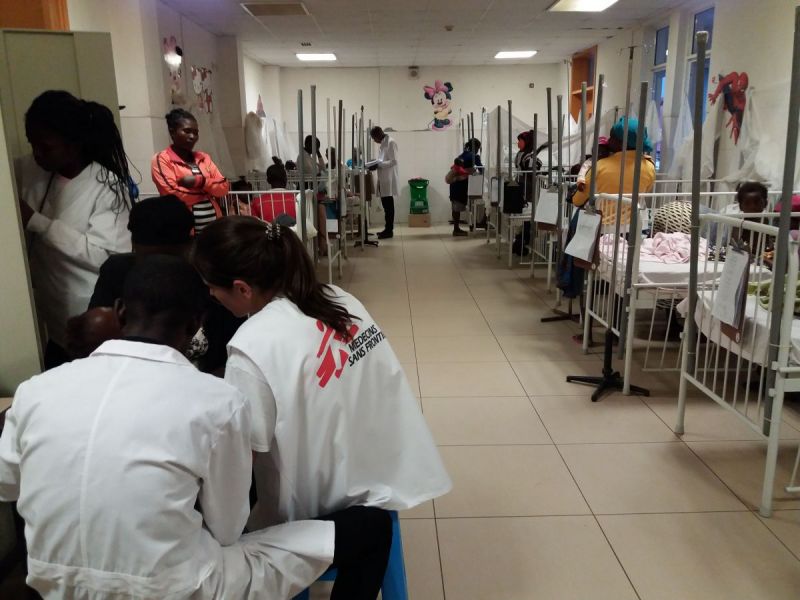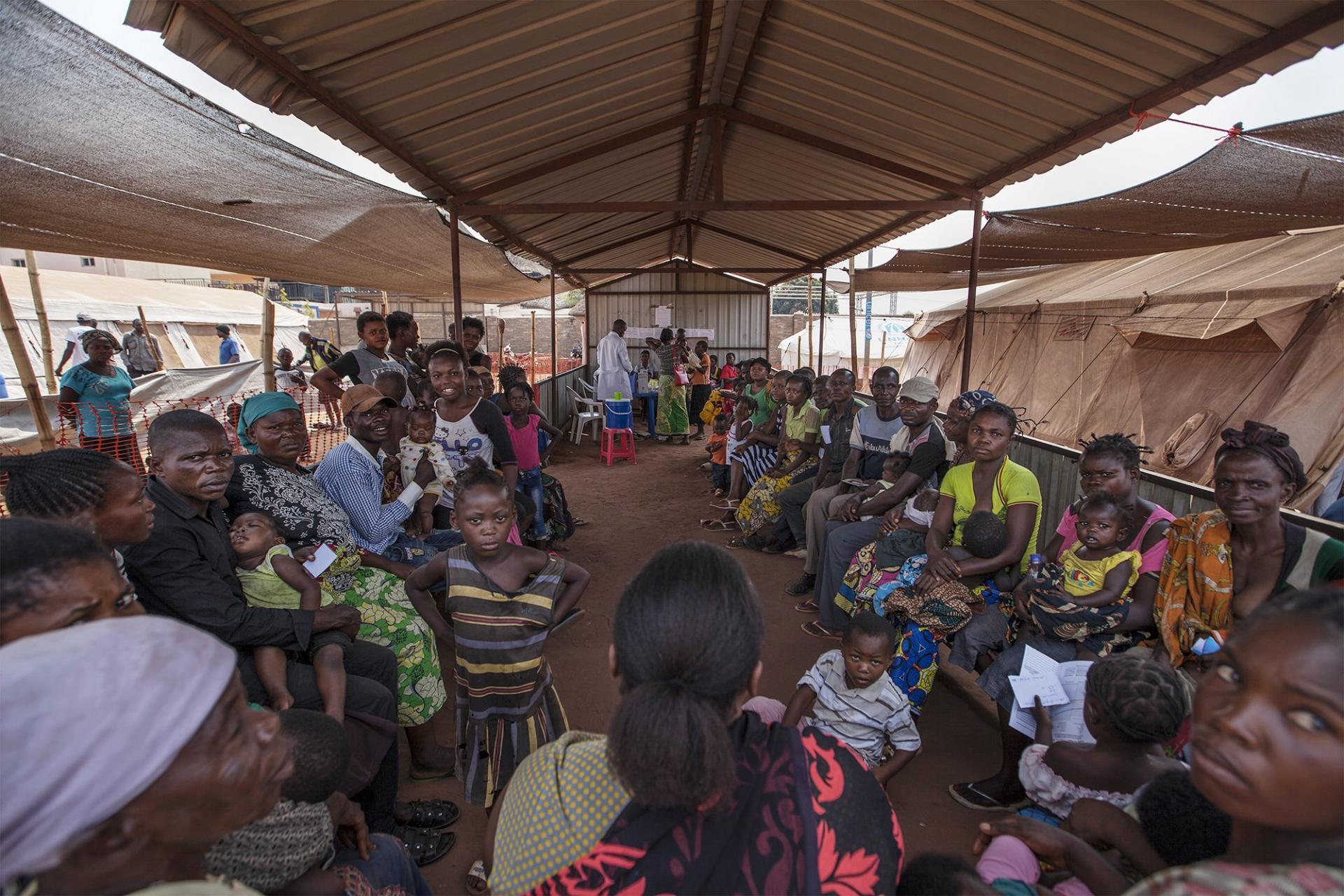According to the latest data obtained by the health authorities who work with the medical-humanitarian organisation Doctors Without Borders (MSF), the malaria epidemic that broke out in the Huambo province of Angola several months ago is beginning to stabilise and subside.
MSF began working in the area in January and has treated 3,000 children with severe malaria. MSF received permission to step in with the Ministry of Health after detecting that the high number of people with malaria exceeded the capacities of the province’s municipal and provincial hospitals.
The organisation has recently observed that the number of patients has stabilised, as well as a seeing a decrease in the percentage of children admitted for malaria to the provincial hospital where it is working in the paediatrics department. “At the beginning, 80% of child admissions were due to severe malaria, but this figure now stands at 50%.

Until recently we have hospitalized 400 children for malaria every week, although this can also be explained by the “word-of-mouth” effect, in which more families bring their children directly to the provincial hospital.
The mortality rate has likewise returned to normal levels,” explains Isabel Grovas, coordinator of MSF’s medical team in the area. The team is composed of roughly 100 people.
The team helped to refurbish an area of the hospital that was not in use, thus increasing the number of beds available to accommodate children with malaria. “We went from having 65 beds available to a total of 150, which meant that every child had their own bed.”
The lack of medication in local communities explains the arrival of children in very serious conditions. “People do not have access to medicines in their communities, and health facilities are also difficult to access.
When a child gets sick, the family waits a couple of days to see if they improve; only when they are in a serious condition do they come to the health centres.
Deaths in the hospital were taking place two hours after admission when it was too late to do anything. And we don’t have the capacity to act across an entire province. The supply of medicine has been insufficient because we are facing an extraordinary situation,” says Grovas.
Huambo had made progress in malaria prevention and reduction in recent years, with different organisations working to distribute mosquito nets, perform vector control, exterminate mosquitoes and their larvae, etc. However, the economic crisis that erupted in 2014 also had its impact on these efforts.
Furthermore, an increase in rainfall and temperatures last year resulted in a greater proliferation of the mosquito that transmits the disease.
“Malaria levels are four or five times higher in this epidemic, which means that none of the health facilities have been able to cope with the volume of patients,” explains the MSF coordinator, adding that malaria has a greater impact on children under 15 years of age because adults have some degree of immunity to the disease.
MSF has recruited 34 nurses, 16 doctors and 18 hygienists to tackle the emergency in Huambo where they have collaborated in nine municipal hospitals they monitor on a regular basis by donating artesunate and by training medical personnel on its use and the treatment of serious cases.
Depending on how the epidemic evolves in the coming weeks, MSF could leave the province at the end of April, “although we still have to assess the consequences of a new spike expected in May,” adds the medical coordinator.
After an absence of nine years, MSF resumed its work in Angola in 2016 to support the country’s health authorities in emergency situations.
So far, it has worked in Dundo, assisting refugees from the Democratic Republic of the Congo (DRC); in Namacunde, in another spike of malaria and malnutrition (both in 2017); and treating patients with yellow fever in 2016; and in Uíge (2017,2018), Soyo and Luanda during cholera outbreaks (2017).
Find out more about MSF's work in Angola.
